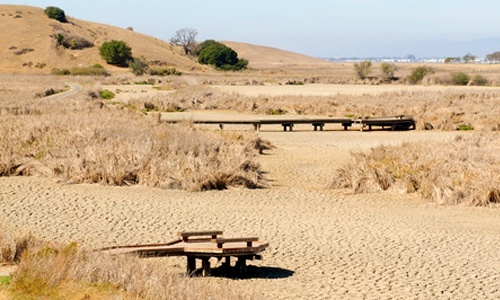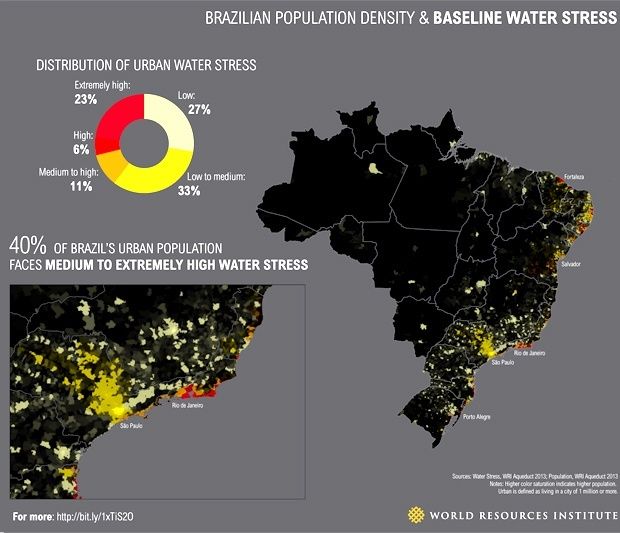

4. The dark side of China’s boom
Much of northern China is relatively dry, not unlike California and the rest of the U.S. West. Yet it’s also traditionally produced significant amounts of wheat and other grains, thanks to flood irrigation. Add to this inefficient system skyrocketing water use by industry, energy and municipalities, and China’s future might be drying up.
Government officials are starting to take action. Water is now one of China’s public policy priorities, and the central government recently launched a “Three Red Lines” policy to improve water use efficiency and place caps on water demand. Yet it remains unclear whether these policies are sufficient to overcome the country’s vast water challenges.
5. Mesopotamian nightmare
From 2006 through 2011, Syria suffered its worst drought and crop failure in recorded history. The GRACE satellite data revealed “an alarming rate of decrease in total water storage in the Tigris and Euphrates river basins, which [at the time had] the second fastest rate of groundwater storage loss on Earth, after India.” While many other factors—political, social and religious—have contributed to the Syrian military conflict, experts argue that “the decrease in water availability, water mismanagement, agricultural failures, and related economic deterioration contributed to population dislocations and the migration of rural communities to nearby cities. These factors further contributed to urban unemployment, economic dislocations, food insecurity for more than a million people, and subsequent social unrest.”
6. Southeastern Brazil on the brink
Parts of southeastern Brazil, including the cities of São Paolo, Rio de Janeiro and Belo Horizonte, are struggling through the worst drought in 84 years, with 40 million people and the nation’s “economic heartbeat” at risk. Reservoirs that supply water to these cities are at dangerously low levels. They’re also highly polluted, complicating things even further.

Unfortunately, politicians have failed to act decisively to take steps to minimize the impact of the crisis, raising levels of public distrust and frustration. There has even been talk of exporting “water refugees” and bringing in the military to help out if matters grow worse.
7. Turning now to California
California is in the throes of an unprecedented drought, now in its fourth year. Gov. Jerry Brown ordered mandatory restrictions on water use by state municipalities early last month, and a group of farmers with senior rights have since given up a quarter of their water this year in exchange for being spared deeper mandatory cuts. The situation is bad—even desperate for some farmers. As I argued in a recent blog, the state needs to improve its water governance in order to protect its economic interests and its citizens.
The situation is poised to worsen
World Resources Institute’s Aqueduct project’s forthcoming projections for global water stress in 2020, 2030 and 2040 indicate that the global water picture is likely going to get worse over the next few decades. Larger populations and growing economies demand more water, and in some places, climate change will likely reduce available water supply. While our vulnerability to drought grows, the incidence of extreme weather events, including drought, will grow as well, according to most climate change experts.
Yet in this knowledge lies power. We know that drought risk is high and growing worldwide. We’re already seeing the impact water scarcity has on citizens, on the environment and on economies. Sustainable water-management plans, clear government monitoring and management policies and wise natural and engineered infrastructure investments could have helped to shore up the dwindling water supply, alleviating impacts on people, planet and economy.
It’s time to put this information into action. Businesses, governments and all water managers must quickly and intelligently take measures to reduce vulnerability to drought events.
YOU MIGHT ALSO LIKE
Santorum to Pope Francis: Police Bedrooms Not Climate Issues
India Minister: Climate Change to Blame for 5th Deadliest Heat Wave in World History

 233k
233k  41k
41k  Subscribe
Subscribe 